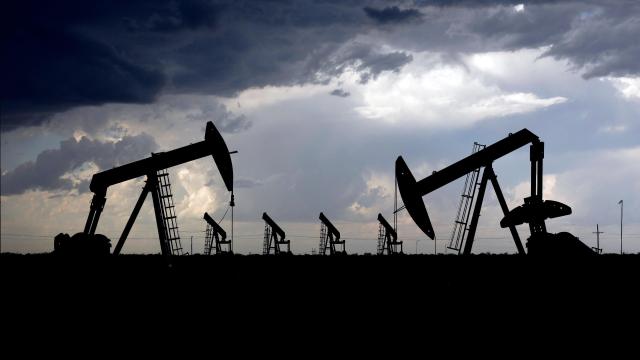Texas is standing up to bullies — big banks that bully oil and gas, that is. This week, the Texas’s comptroller’s office released a list of financial firms and funds it has determined are “boycotting” the oil and gas industry, directing pensions and other state funds to divest from these entities in accordance with Texas law.
On the list are 10 major banks and financial firms, including BlackRock, BNP Paribas, and Credit Suisse, that the comptroller’s office has determined are being meanies to poor, innocent oil and gas. Another portion of the list names nearly 350 individual investment funds that the comptroller’s office has also defined as problematic for fossil fuels.
“It’s political theatre,” said Andy Behar, the CEO of nonprofit As You Sow. “I look at [the list] and go, what? It doesn’t quite make sense to me. They’re looking more at the name of the funds than the holdings.”
The impetus for the list comes from a law passed last year that forbids the state from doing business with entities that “boycott energy companies,” inspired by a similar piece of legislation passed in 2017 designed to prevent Texas from doing business with entities who support the Boycott, Divestment, Sanctions, or BDS movement, for Palestine. The law gave the comptroller’s office a wide berth to design research to determine which entities fell under the definition of “boycotting” oil and gas.
“The environmental, social and corporate governance (ESG) movement has produced an opaque and perverse system in which some financial companies no longer make decisions in the best interest of their shareholders or their clients, but instead use their financial clout to push a social and political agenda shrouded in secrecy,” Texas Comptroller Glenn Hegar said in a statement.
The final list of companies and funds released this week is… very weird, to put it bluntly. The methodology provided by the Comptroller’s office provides a few details as to how the list was created, including looking at environmental social governance (ESG) data and membership in groups like Climate Action 100 and the Net Zero Banking Alliance. But many of the companies and funds on the list still invest substantially in oil and gas, with no plans to stop in the near future.
Take BlackRock, the top listed firm and owner of several funds on this list. In recent years, the bank has emerged as the right’s primary target in its war against “woke” investing, thanks in part to CEO Larry Summers’ (comparatively mild) statements that financial institutions should maybe do something about climate change. The comptroller’s office seems to have painted a target on the financial giant’s back from the start of its investigation — despite the fact that BlackRock executives in January privately assured Texas officials that it didn’t really mean those nasty things it said about oil and gas, and wrote a letter to the comptroller’s office in May detailing its investment in the fossil fuel industry.
Many of BlackRock’s funds labelled as ESG that are on the comptroller’s naughty list, Behar said, still have substantial investments in major oil companies. The company has confirmed that it is Texas’s single biggest investor in oil and gas, with some $US290 ($403) billion in assets in Texas fossil fuel companies.
The fact that BlackRock has substantial oil and gas holdings in Texas “did not enter into their calculation here,” Behar said. “[The Comptroller’s Office] does not care if they harm the Texas oil industry.”
The idea of punishing companies that are incorporating tactics to move away from fossil fuels has been pushed by pro-fossil fuel think tanks like the Texas Public Policy Foundation and has picked up steam ideologically on the right in recent months. Oklahoma, Indiana, and Louisiana all had legislation either passed or introduced this year discouraging the state from doing business with entities that “boycott” fossil fuels. Last month, West Virginia said the state could no longer do business with five major banks — BlackRock, Goldman Sachs Group, JPMorgan Chase, Morgan Stanley, and Wells Fargo — because they were engaged in a “boycott of energy companies.” (It’s worth noting that many of these banks are still major funders of fossil fuel projects, despite making public statements in support of climate action.)
Divesting from these funds and banks could have real implications for people in Texas and other states that follow suit.
“You move your money into an established diversified asset manager to a completely new experience, you start losing money,” Behar said. “A lot of people living in red states are going to lose a ton of money, these states are going to spend a lot on interest, and they’re not going to have money to spend on infrastructure. It could actually cause a lot of hardships to people.”
